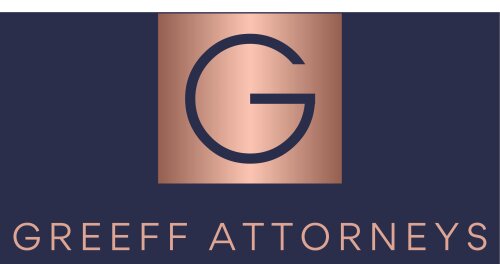Best Brokerage Lawyers in Cape Town
Share your needs with us, get contacted by law firms.
Free. Takes 2 min.
Free Guide to Hiring a Real Estate Lawyer
List of the best lawyers in Cape Town, South Africa
About Brokerage Law in Cape Town, South Africa:
Brokerage law in Cape Town, South Africa refers to the regulations and legal framework governing the buying and selling of real estate properties through licensed brokers. These laws aim to protect both buyers and sellers in property transactions and ensure fair and transparent practices in the real estate market.
Why You May Need a Lawyer:
You may need a lawyer in brokerage law in Cape Town, South Africa for various reasons, such as drafting or reviewing contracts, resolving disputes between parties, handling legal issues related to property title, or navigating complex real estate laws and regulations.
Local Laws Overview:
Some key aspects of local laws that are particularly relevant to brokerage law in Cape Town, South Africa include regulations on property disclosures, deed restrictions, zoning laws, and the legal requirements for property sales contracts. It is crucial to understand these laws to ensure compliance and protect your interests in real estate transactions.
Frequently Asked Questions:
Q: What are the responsibilities of a real estate broker in Cape Town?
A: Real estate brokers in Cape Town are responsible for facilitating property transactions, representing clients in negotiations, providing market analysis, and ensuring legal compliance in real estate transactions.
Q: Do I need a lawyer to buy or sell a property in Cape Town?
A: While it is not mandatory to have a lawyer in property transactions, having legal representation can help protect your interests, ensure compliance with local laws, and navigate any legal challenges that may arise.
Q: What should I look for when hiring a real estate lawyer in Cape Town?
A: When hiring a real estate lawyer in Cape Town, consider their experience in brokerage law, reputation, track record of success, communication style, and fees. It is essential to choose a lawyer who understands your needs and can effectively represent you in property transactions.
Q: What are common legal issues that may arise in property transactions in Cape Town?
A: Common legal issues in property transactions in Cape Town include contract disputes, undisclosed property defects, zoning violations, breach of contract, title defects, and regulatory compliance issues. It is essential to address these issues promptly with legal assistance to protect your interests.
Q: How can a lawyer help in resolving disputes between buyers and sellers in Cape Town?
A: A lawyer can help in resolving disputes between buyers and sellers in Cape Town by negotiating settlements, mediating discussions, representing clients in court proceedings, and providing legal advice on the best course of action to resolve the dispute effectively.
Q: What are the legal requirements for property sales contracts in Cape Town?
A: Property sales contracts in Cape Town must be in writing, include essential terms such as the purchase price, property description, closing date, and conditions of the sale. Both parties must sign the contract, and any amendments or addendums should be recorded in writing.
Q: Can a lawyer help with due diligence in property transactions in Cape Town?
A: Yes, a lawyer can help with due diligence in property transactions in Cape Town by conducting title searches, reviewing property documents, verifying zoning regulations, investigating property liens, and ensuring legal compliance throughout the transaction process.
Q: How can I protect my interests in a real estate transaction in Cape Town?
A: To protect your interests in a real estate transaction in Cape Town, consider hiring a lawyer to review contracts, conduct due diligence, advise you on legal matters, and represent you in negotiations to ensure a fair and successful property transaction.
Q: What are the regulations on property disclosures in Cape Town?
A: Property sellers in Cape Town are required to disclose any known defects or issues with the property to potential buyers. Failure to disclose material information can result in legal consequences, so it is crucial to be transparent in property transactions.
Q: How can I verify the credentials of a real estate broker in Cape Town?
A: To verify the credentials of a real estate broker in Cape Town, you can check with the relevant regulatory authorities, such as the Real Estate Agency Affairs Board (EAAB), to ensure that the broker is licensed and in good standing to conduct real estate transactions.
Additional Resources:
For additional resources related to brokerage law in Cape Town, South Africa, you can contact the Cape Town Association of Realtors, the Real Estate Agency Affairs Board, or consult with local real estate lawyers specializing in brokerage law for guidance and legal assistance.
Next Steps:
If you require legal assistance in brokerage law in Cape Town, South Africa, consider consulting with a reputable real estate lawyer who can provide you with legal advice, representation, and guidance throughout the property transaction process. It is essential to protect your interests and ensure compliance with local laws to avoid any legal challenges in real estate transactions.
Lawzana helps you find the best lawyers and law firms in Cape Town through a curated and pre-screened list of qualified legal professionals. Our platform offers rankings and detailed profiles of attorneys and law firms, allowing you to compare based on practice areas, including Brokerage, experience, and client feedback.
Each profile includes a description of the firm's areas of practice, client reviews, team members and partners, year of establishment, spoken languages, office locations, contact information, social media presence, and any published articles or resources. Most firms on our platform speak English and are experienced in both local and international legal matters.
Get a quote from top-rated law firms in Cape Town, South Africa — quickly, securely, and without unnecessary hassle.
Disclaimer:
The information provided on this page is for general informational purposes only and does not constitute legal advice. While we strive to ensure the accuracy and relevance of the content, legal information may change over time, and interpretations of the law can vary. You should always consult with a qualified legal professional for advice specific to your situation.
We disclaim all liability for actions taken or not taken based on the content of this page. If you believe any information is incorrect or outdated, please contact us, and we will review and update it where appropriate.
















